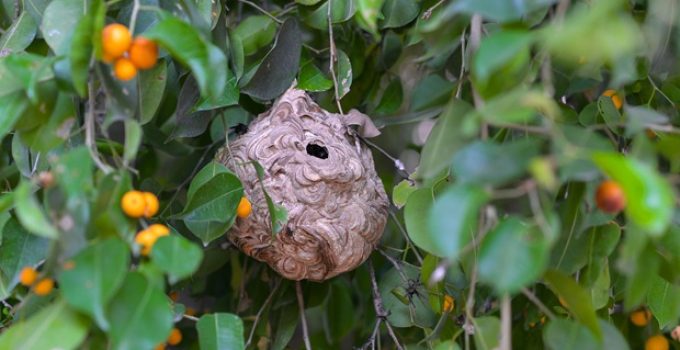Do bees sleep, or are they constantly buzzing around? While bees are known for their tireless work ethic, the truth is—bees do sleep. Like humans, sleep helps bees restore brain function, consolidate memories, and maintain overall colony health. Although their sleep looks a bit different from ours, it’s just as critical to their survival.
Dive Deeper
What Does Bee Sleep Look Like?
When and Where Do Bees Sleep?
Why Is Sleep Important for Bees?
How Much Do Bees Sleep?
Bee Sleep Behavior Table
🎯 Final Thoughts
📚 References
💤 What Does Bee Sleep Look Like?
Bees don’t have eyelids, so they don’t visibly “shut their eyes.” Instead, sleeping bees become very still, lower their antennae, and stop responding to movement or touch.
According to research from the University of Würzburg, sleeping bees show:
- Slowed heart rate
- Relaxed posture
- Reduced muscle tone
- Periods of unresponsiveness to stimuli [1]
| 🧪 In 1983, sleep was scientifically confirmed in honey bees when researchers observed behavioral markers that matched sleep definitions used for mammals and birds [2]. |
🌙 When and Where Do Bees Sleep?
Bees typically sleep at night, although some rest during the day, especially older foragers recovering from long flights.
Where they sleep depends on their role:
- Worker bees: Sleep inside the hive, especially in cells or tucked between combs.
- Foragers: Sometimes sleep outside the hive, clinging to stems or leaves if caught too far from home.
- Drones and queens: Also exhibit rest behavior, although less is known about their sleep cycles.
| 🐝 Foraging bees have been observed sleeping in flowers overnight, using petals for shelter and warmth. |
🧠 Why Is Sleep Important for Bees?
Just like in humans, sleep in bees supports learning and memory. A 2005 study published in Nature showed that honey bees need sleep to retain information learned from waggle dances. Deprived bees miscommunicated food locations to others in the colony [3].
Sleep also helps bees:
- Replenish energy
- Process sensory input from the day
- Avoid overexertion and stress
Without adequate sleep, bees may become disoriented, less effective at foraging, and impaired in social behaviors.
⏰ How Much Do Bees Sleep?
The amount of sleep varies by age and caste:
| 🧪 Studies show that forager bees can sleep up to 5–8 hours per day, typically in short bursts lasting a few minutes at a time [4]. |
Younger worker bees tend to sleep less, as they are busy nursing larvae or cleaning cells. In contrast, older foragers prioritize sleep to recover from energy-intensive flights.
Sleep is polyphasic, meaning bees take many short naps throughout the day and night rather than one long period of rest.
🧾 Bee Sleep Behavior Table
| Bee Role | Sleeps? | When? | Where? | Why It Matters |
|---|---|---|---|---|
| Worker Bee | ✅ Yes | Mostly at night | Inside hive, in combs | Supports hive maintenance & coordination |
| Forager Bee | ✅ Yes | Night & short naps | In hive or on flowers/stems | Memory for navigation and foraging accuracy |
| Drone | ✅ Yes | Intermittent | Hive interior | Prepares for mating flights |
| Queen Bee | ✅ Likely | Unclear | Near brood center | Conserves energy for reproduction |
🎯 Final Thoughts
So, do bees sleep? Yes—and it’s essential to their survival. Sleep allows bees to process complex information, maintain hive health, and perform their roles effectively. While they don’t curl up in beds or close their eyes, bees exhibit clear signs of rest. From foragers snoozing on petals to worker bees napping between tasks, sleep is as much a part of a bee’s life as nectar and flight.
📚 References
- Kaiser, W. (1988). Sleep in Insects. Annual Review of Entomology, 33, 215–232. https://doi.org/10.1146/annurev.en.33.010188.001243
- Sauer, S., & Kaiser, W. (1983). Sleep in honey bees. Journal of Comparative Physiology, 153, 457–464. https://doi.org/10.1007/BF00612308
- Hussaini, S. A., Bogusch, L., Landgraf, T., & Menzel, R. (2009). Sleep deprivation affects communication and learning in honey bees. Nature Neuroscience, 12(10), 1359–1360. https://doi.org/10.1038/nn.2394
- Eban-Rothschild, A., Belluzzi, J. D., & Bloch, G. (2012). Maternity matters: The distribution of sleep is modulated by reproductive physiology in bees. Current Biology, 22(11), 1068–1072. https://doi.org/10.1016/j.cub.2012.04.032
